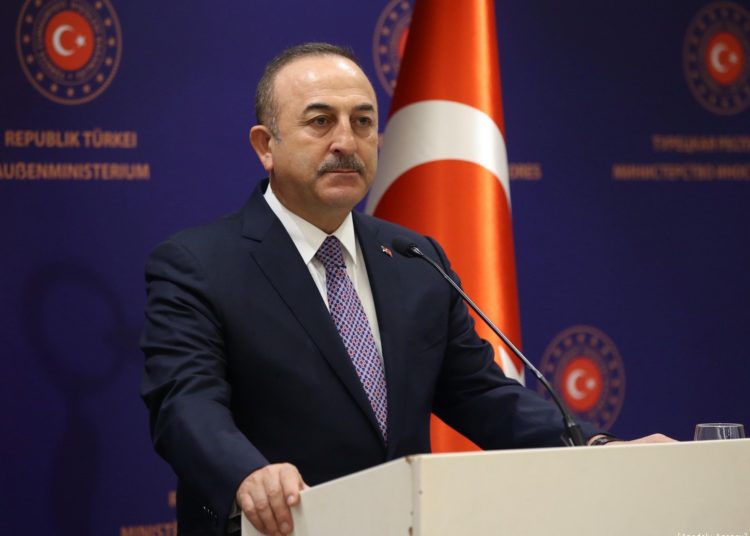Nordic Monitor
Turkey’s foreign minister, Mevlüt Çavuşoğlu, has claimed that Turkish President Recep Tayyip Erdoğan and US President Donald Trump agreed to cooperate in Libya and that officials from the two countries had met to discuss the technical details of a possible cooperation.
According to Çavuşoğlu, the Turkish government has received strong support from the US administration after its Idlib offensive, and the US has conducted a campaign in Europe to ensure support for Turkey’s military operation.
Foreign Minister Çavuşoğlu attended a webinar with the US-based Turkish American National Steering Committee (TASC) on June 18 and answered questions about Turkish-US relations, recent foreign policy developments and possible fields of cooperation. “Compared to the last year, we can say that [tensions] are easing between us,” Çavuşoğlu underlined in his speech.
“Recently, the US has been trying to play a more active role in Libya. Our president [Erdoğan] has proposed that US President Donald Trump cooperate [in Libya]. Trump responded positively to that. We received instructions to work together at the level of foreign and defense ministers and intelligence authorities. [Bilateral] meetings at the technical level continue. Our cooperation is important for the stability of the region and the future of Libya. We would like to further expand our areas of cooperation.,” stated Çavuşoğlu.
Erdoğan and Trump spoke on the phone on June 8, and they, according to the Turkish president, discussed the conflict in Libya and agreed on “some issues” related to developments in the North African country. “A new era between Turkey and the US may start after our phone call. We agreed on some issues,” Erdoğan said in an interview with Turkish public broadcaster TRT.
Çavuşoğlu’s remarks came a day after he, Treasury and Finance Minister Berat Albayrak and other top Turkish officials held talks with the Government of National Accord (GNA) in Tripoli to discuss the latest developments in the region.
After the Turkish delegation’s visit to Libya on June 17, Çavuşoğlu stated that they had discussed measures to be taken in the region with regards to energy. “As you know, we have signed a memorandum of understanding with Libya regarding the delimitation of maritime jurisdiction. We discussed all the measures that need to be taken in the Mediterranean regarding energy,” he said, adding that “[t]he purpose of the visit was clear: to strongly reiterate that Turkey supports Libya. We also discussed how the two countries can improve their bilateral relations.”
Turkey provides military support to the GNA as well as to the allied militias that have joined forces against General Khalifa Haftar’s Libyan National Army (LNA). The Turkish support has been crucial in the GNA’s efforts to push back the LNA, which launched an offensive in April of last year to seize Tripoli. After a string of recent military gains, the GNA said it had captured all areas surrounding the Tripoli administrative area at the beginning of June.

In addition to possible cooperation in Libya, the Turkish foreign minister also informed TASC members of US support for Turkey’s recent military offensive in Idlib. He claimed that the US administration had conducted a campaign in European capitals to ensure support for the Turkish operation in northern Syria.
“We have received the strongest support from the United States after the Idlib offensive. We have gotten moral support from our European allies, but not concrete support. Furthermore, the US has conducted a campaign to ensure support for Turkey in the capitals of our European allies. We are also aware of that,” he said.
Turkey launched Operation Spring Shield on February 27 after at least 34 Turkish soldiers were killed in a Syrian army airstrike in Idlib province. Between February 27 and March 5, Turkey conducted the offensive to halt the Syrian army’s blitz offensive in Idlib and to press Moscow into brokering a ceasefire. Turkey’s operation was carried out with about 100 domestically produced drones launching cheap guided munitions with deadly efficiency.












